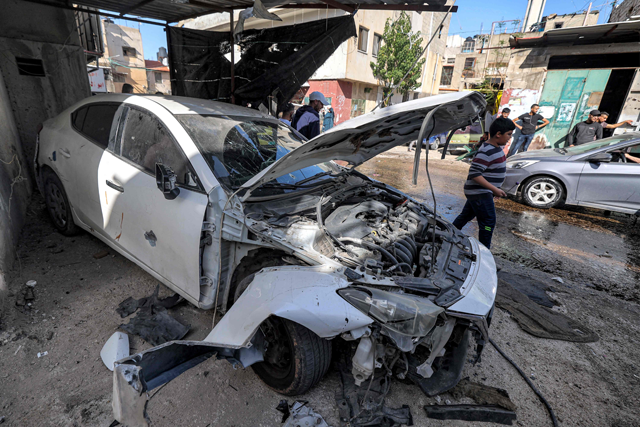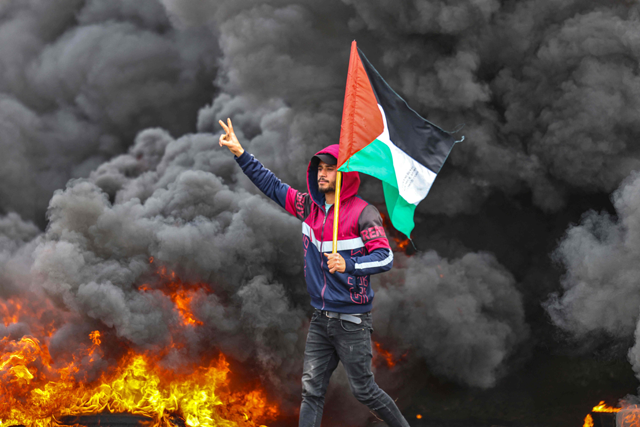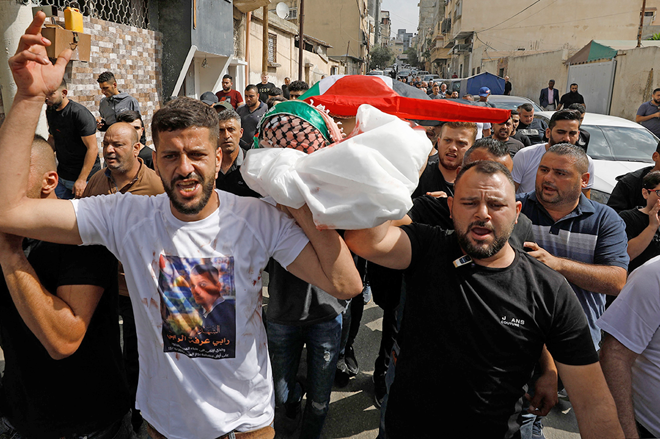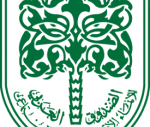You are here
Israeli raids in West Bank weigh on Palestinian doctors
By AFP - Aug 31,2022 - Last updated at Aug 31,2022
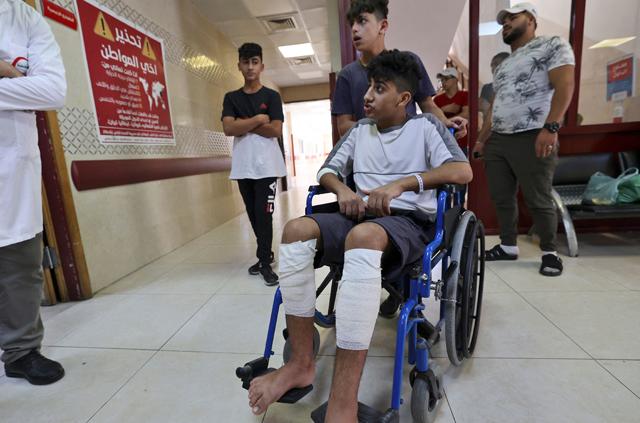
A wounded Palestinian youth is treated at Rafidia Surgical Hospital in the West Bank city of Nablus on Wednesday (AFP photo)
NABLUS — Doctors in the occupied West Bank are struggling to save Palestinians from permanent disability after being shot by Israeli occupation forces.
At Rafidia Surgical Hospital in Nablus, in the northern West Bank, a teenager with bandaged legs was carried up the stairs by another boy.
He had been shot below the knee by Israeli forces in Balata, a refugee camp on the edge of the city.
The 16-year-old, whose mother soon arrived in the emergency room, was the latest Palestinian to be hit by Israeli gunfire in the northern West Bank.
"There is a lot of pressure on the hospital, as a result of the various injuries and the large amount of injuries," said Dr Fouad Nafaa, head of Rafidia's surgical department.
On a single day in August, medics from the Palestinian Red Crescent Society (PRCS) treated 69 patients with gunshot wounds in Nablus after an army raid.
Nablus militant Ibrahim Al Nabulsi was one of four people killed in that raid on August 9.
Many of the wounded were taken to Rafidia, where Nafaa said the team has been receiving "very difficult" cases lately.
Emergency 'day and night'
"In terms of the type of weapons used and ammunition used, and in terms of the places they are shot, for example the head, the neck, the abdomen and the chest, the injuries were more serious," said Nafaa.
In Jenin, the director of Ibn Sina Hospital said the scale of casualties is "increasing dramatically".
“It’s not easy to deal with many casualties at the same time,” said Jani Abu Joukha.
“But we handle [it]... the staff are experts.”
He described critical days with some 15 casualties arriving within 15 minutes of one another at the hospital.
Since April, the World Health Organisation (WHO) has been supporting training for medics dealing with mass casualty incidents in the West Bank.
Rik Peeperkorn, WHO’s representative in the Palestinian territories, said sudden emergencies put “immense strain on the already fragile health system”.
At least 1,380 Palestinians have been shot across the West Bank since the start of last year, according to data from the UN and PRCS.
More than 40 per cent of them were in Nablus and Jenin governorates.
Palestinian-American journalist Shireen Abu Akleh of Al Jazeera was shot dead north of Jenin in May while covering an Israeli raid.
According to the Palestinian health ministry, hospitals are understaffed across all departments due to a chronic funding shortfall.
Maria Al Aqra, the ministry’s head of international cooperation, said flare-ups of violence prompt doctors to delay routine operations.
“We live in [a state of] emergency, day and night,” she said.
“Our staff do our best, and some of them work three shifts” during emergencies, Aqra added.
The dangers do not end once the guns fall silent, as patients’ wounds can become infected.
Dr Jamal Abu Alkebash, an orthopaedic specialist at Rafidia, said some also risk paralysis after being shot through an artery or a nerve.
“We face a big problem with these injuries. It’s the type of bullets used, explosive bullets,” said Alkebash.
“We try to help the patient. However, the wounded end up paralysed, or amputees, disabled or with a number of fractures of various kinds,” he explained.
Related Articles
NABLUS, Palestinian Territories — Israeli forces shot and wounded seven people in a raid on Tuesday in the occupied West Bank, the Pal
GAZA CITY — Israel launched air strikes on Gaza in return for alleged rocket fire from the Palestinian enclave Thursday, a day after the dea
NABLUS, Palestinian Territories — A Palestinian was killed on Sunday in an explosion in the occupied West Bank, police said, with Israel sta


